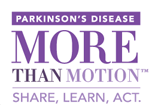
How Genetics and Personalized Medicine Could Help You Live Longer and Healthier
Personalized medicine is exactly what it sounds like care that is hyper-tailored to a given patient. “Scientists are trying to come up with therapies that are more customized based on an individual’s genotype, the environment in which they live, and their lifestyle,” says Sunil Kumar, Ph.D., a postdoctoral research associate at the University of North Carolina’s Lineberger Comprehensive Cancer Center.
Sure, no two people are exactly alike. But having similar genes could mean similar responses to medications—leading to faster, more efficient treatment of critical illnesses like cancer, heart disease and neurodegenerative disease. But, Kumar says, there must be a precedent of a certain drug (with a particular chemical composition and mechanism of action) working for a person with a certain genotype. And that correlation must be established through clinical studies.
For example, say ten patients have lung cancer, and there are many FDA-approved medicines in the market to treat lung cancer. “One drug may be more effective in some patients compared to others,” says Kumar. The first step to personalization is to design a study in which you have a huge population with genetic differences, and then to treat them with one of two drugs. If you find differences in the recovery between them, then you can figure out which drug works best for people of a particular genetic background. Prior in-vivo studies must be done before doing such clinical studies with a human population.
So far, personalized medicine has made a substantial impact in breast cancer treatment, where about two-thirds of patients have the estrogen receptor positive gene which is known to respond better to endocrine therapy. Similarly, in head and neck cancer cases, disease control is better if the cancer is classified as being caused by HPV infection. Researchers have also begun identifying many crucial genetic risk factors in patients with chronic conditions, says Kumar, but right now studies are restricted to smaller cohorts because of funding and other obstacles. The next steps are assessing the impact of such genetic risks and implementing large scale human population drug testing to see what relationships may exist between genetic differences and drug efficacy.
Ultimately, these findings will allow doctors everywhere to prescribe with better accuracy, which means less time spent trying different drugs and alternative therapies. Of course, personalized medicine is only possible with the necessary genetic pre-testing, which is typically doctor-ordered based on symptoms and performed in a confidential hospital setting. “There is a cost involved to test each individual patient before applying a therapy,” says Kumar. But, in many cases, genetic tests are covered by insurance companies in the United States, and prices are dropping dramatically. While whole genome sequencing can answer almost all the possible genetic changes in an individual, Kumar says that targeted tests which home in on a certain region of the genome where genetic changes are reported in patients with different diseases—are currently the most cost-sensitive option.
And much more is coming down the pipeline for personalized medicine. “This is an active area of research, and human biology is not completely understood yet,” says Kumar. “Genetic differences are getting discovered on a regular basis and researchers need to work on alternative treatments.” The better we understand the disease associated with genetic changes, the more effective the treatment will be.




